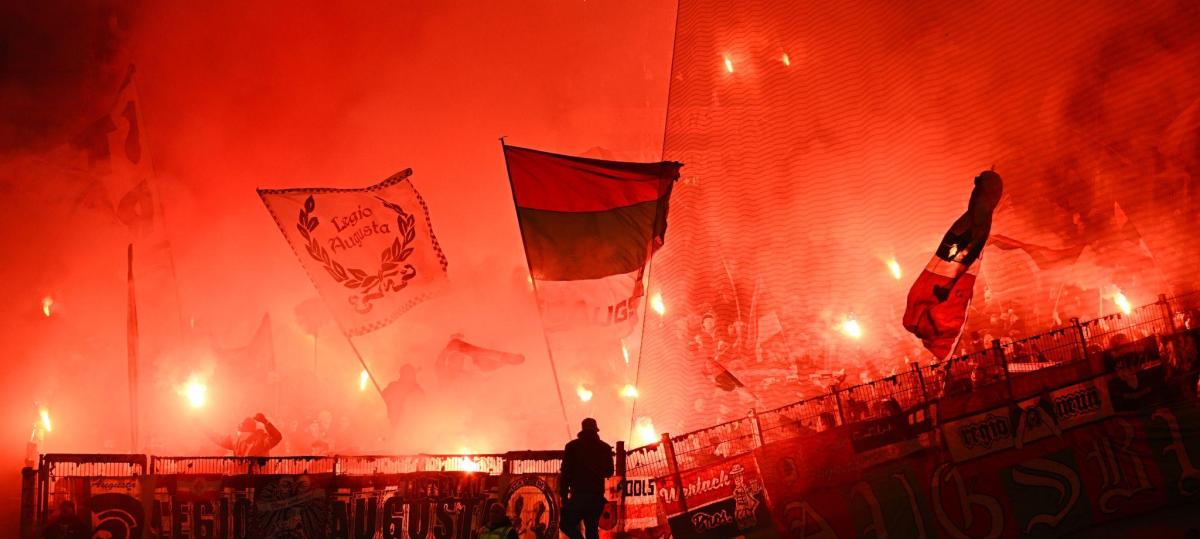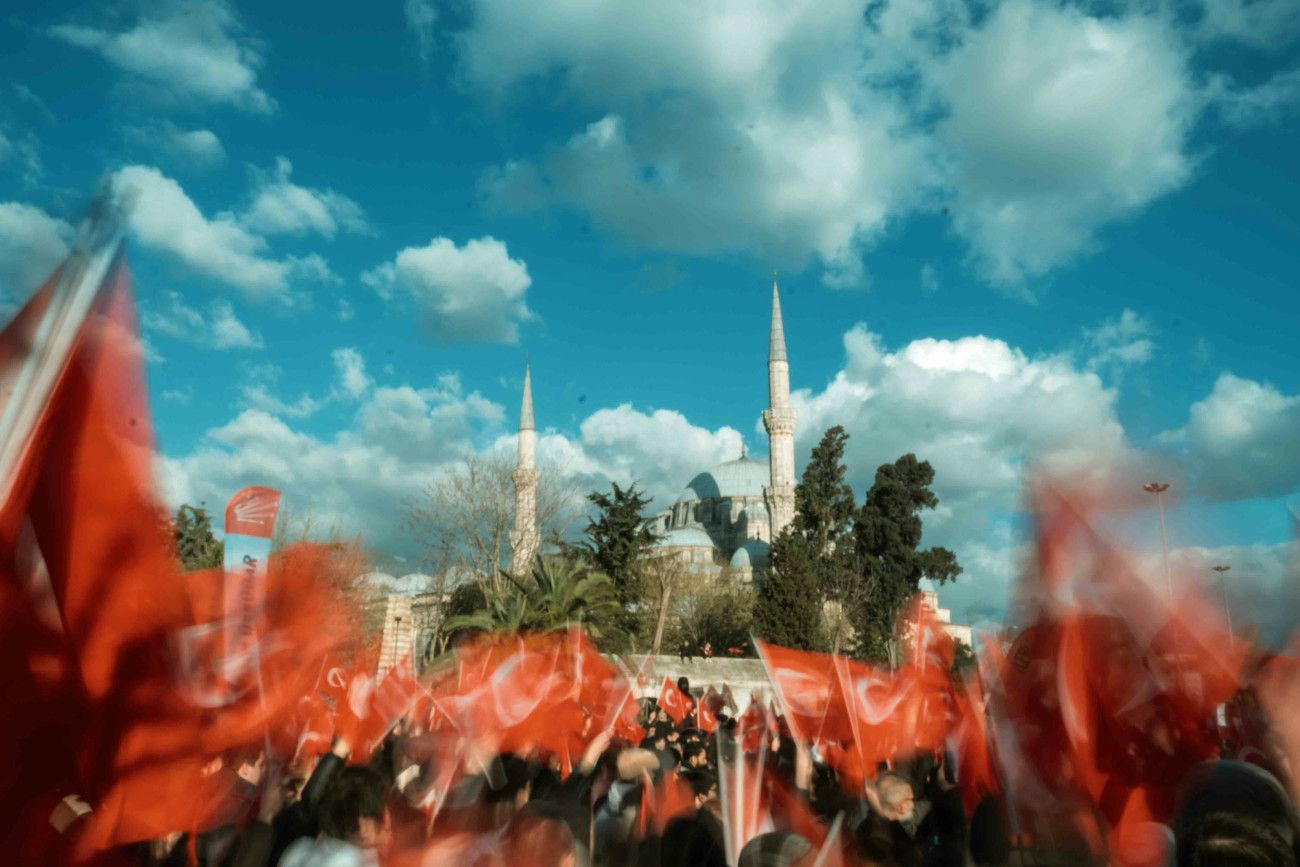The organizer of the Songfestival is under heavy pressure. What should the EBU do to restore trust?
/s3/static.nrc.nl/images/gn4/stripped/data132657811-5cb9dd.jpg|https://images.nrc.nl/wXnxddPZWBf_UaXq4OULRKY72dk=/1920x/filters:no_upscale()/s3/static.nrc.nl/images/gn4/stripped/data132657811-5cb9dd.jpg|https://images.nrc.nl/fbu7o8eOCVsnV4Myx3KiYUzpN9w=/5760x/filters:no_upscale()/s3/static.nrc.nl/images/gn4/stripped/data132657811-5cb9dd.jpg)
A large silver spiral staircase and a fireworks rain: so far little special about the fourth act on the stage of the Eurovision Song Contest on Saturday evening. But with the ballad that Yuval Raphael, a survivor of the Hamas attack of October 7, brought, she represented Israel. The country obtained the most public votes and became second, after Austria. This made one for the organization headache filenamely Israeli profit, averted.
In the night that followed the Songfestival final, Israel killed at least a hundred Palestinians With bombing spread over Gaza. The Palestinian news agency Wafa spoke of « one of the bloodiest nights » since the beginning of what experts Meanwhile, call Israel’s genocide on Gaza. Prior to the Songfestival, Israel’s participation was controversial, just like last year. In the Swiss city of Basel, demonstration was several times, albeit less massive than a year earlier in Malmö in Sweden.
After the final, more and more broadcasters came with criticism. They each skilled a kandiaat to the Songfestival and his member of the European Broadcasting Union (EBU), which organizes the competition. The ebu call sounds louder and louder to intervene. This makes the future of the Songfestival more uncertain. What things are there? And what do the different parties think?
1. What does the AVROTROS think?
On Tuesday, the AVROTROS, the broadcaster that organizes the Songfestival for the Netherlands, stated with the EBU in conversation To want to because Israeli participation threatens the « a-political and connecting » character. « The political charge and interference have gradually increased in recent years, » the AVROTROS told in response to additional questions NRC. « For us, the limit lies with visible government interference and the lack of a clear reaction to this. If those elements start dominating the public debate, the credibility of the Songfestival is at stake. That makes a fundamental conversation within the EBU necessary. »
The AVROTROS emphasizes that the « care » about this « emphatically does not focus on one country. » The broadcaster remains vague about what they expect from the EBU: a « fundamental and joint reflection » about, among other things, « the role of governments ». Whether the Netherlands will still participate in the future, « partly depends on how the EBU deals with this situation. »
2. What do other broadcasters say?
Ireland, Slovenia, Belgium and Spain also want to talk to the EBU. For the Flemish VRT, « future participation » depends on « full transparency » about the voting system. The Spanish RTVE goes the most and demands an explanation about the points distribution. Israel received twelve points from the Spanish public and zero from the professional jury. The Spanish Prime Minister Pedro Sánchez argued on Monday for the exclusion of Israel: « We cannot afford double standards. »
3. What do the artists say?
The Austrian winner JJ proposes El País That the match « next year without Israel » and « with a fairer voting system » must take place. For the Songfestival sign Dozens of former participants a letter in which she can accuse the Israeli broadcaster of « complicity to Israel’s genocide ».
4. How does the EBU react?
The EBU writes in a statement that « the concerns of all participating broadcasters takes seriously ». « The rules do not prevent broadcasters and third parties from promoting their submissions, many delegations have paid promotional campaigns. » For further questions from NRC the EBU does not go in.
5. How does the EBU decide?
The EBU, a partnership of more than seventy broadcasters, tries to represent the whole of Europe. « It is a huge log device that has long consulted to come to a solution or compromise, » says Hans Laroes, who was involved in the EBU as a former editor-in-chief of the NOS.
Many decisions are made ‘outside the official rooms’, says Laroes. According to him, broadcasters from large countries more influence than the little ones. It is mainly about the ‘big five’: Spain, Italy, Germany, France and Great Britain. They pay extra and are automatically placed for the Songfestival final. Laroes thinks that the EBU will have to ‘bend’ if a large member or much smaller broadcasters are in danger of staying away from the Songfestival. « The EBU and Eurovision must remain representative. A departure of some members undermines that approach. »
6. How was Israel second?
At the Songfestival final weigh the points of the public and professional jury as much. Israël scored mainly with televoting and achieved a total of 357 points. « The voting system promotes such a score, » says Felix Pot, geographer at the University of Groningen who investigated the voting behavior at the Songfestival. « You can only vote for a country and not against. The voices ‘against’ Israel divide over the other 25 participants, the voices for concentration at Raphael. You only need a small, fanatic group per country to gather those twelve points. »
Israel has a large diaspora that can appeal to it. « Moreover, the category ‘rest of the world’ was recently added, Israel, Ukraine and Albania benefit from this. This year there is much to be done about a major voice campaign for Israel. On social media, Israeli ambassadors in different countries call for the country. voice calls does, investigated the VRT. Politicians also shared their sympathy with the Israeli entry via social media. In the Netherlands it involved, among others, party leaders Geert Wilders (PVV), Dilan Yesilgöz (VVD) and Caroline van der Plas (BBB).
Although many media quote the intensive Israeli voting campaign as an explanation, the exact influence on the result is not clear. Moreover, other broadcasters also promoted their submissions. « You can’t prove it one on one, but the assumption is very strong, » says Jonathan Hendrickx, a Belgian professor of media studies at the University of Copenhagen, specialized in the Songfestival. « The criticism is always that more of a country than a song is voted on, but if it happens so structurally and clearly, it will take away all credibility. »
What contributes to the lack of clarity: the EBU refuses to share how many votes have been cast from each country for other countries. There is a maximum of twenty voices per SIM card. On social media people write that they voted on Israel with multiple credit cards.
According to Pot, the professional juries also take the political reality into account. « Those who are in the jury will be announced afterwards. I can imagine that jury members are careful with votes for Israel, that can be understood as a support for that country. » Pot does not expect the voting system to be adjusted quickly.
7. Can Israel be excluded?
If a majority of broadcasters is for exclusion, the EBU can take that step, as happened at Russia after the raid in Ukraine. The question is whether that will happen. Many large broadcasters have not yet spoken. Moreover, broadcasters seem to be inclined to act in line with the position that their national government (and lender) occupies in the Israel debate. It is also indicative that the broadcasters, other than for example, demonstratorsonly speak afterwards. Critics also make a connection with Moroccanoil, an Israeli company that has been the main sponsor of the festival since 2020.
« I don’t think it will come out, » says Hendrickx. « Many broadcasters first looked at the cat from the tree, but realize that credibility is at stake. If broadcasters keep foot and the EBU takes their worries seriously, I think the Ebu Israel encourages not to participate next year. Then the door will remain ajar, but you somewhat demy the situation. »
8. What if the EBU does not change anything?
After the 2024 edition, the EBU would not have taken any action when it comes to the participation of Israel or voting system. If there is no consensus with the participating broadcasters, the EBU could celebrate the seventieth edition of the Songfestival, in May 2026, without significant changes.
The question is how festive that birthday is then. In the fifteen years that he is following the Songfestival, Hendrickx has « never seen so much open criticism. » If nothing changes, he counts on several broadcasters withdrawing. « If too many large countries do that, there is no longer a song festival. If the EBU retains the status quo, then that is equivalent to suicide of the competition. »

/s3/static.nrc.nl/images/gn4/data132656267-f0359b.jpg)
:format(webp)/s3/static.nrc.nl/wp-content/uploads/2024/12/19164727/data125795581-c56a9e.jpg)
/s3/static.nrc.nl/wp-content/uploads/2025/05/22173139/data132656916-4881d3.jpg)




